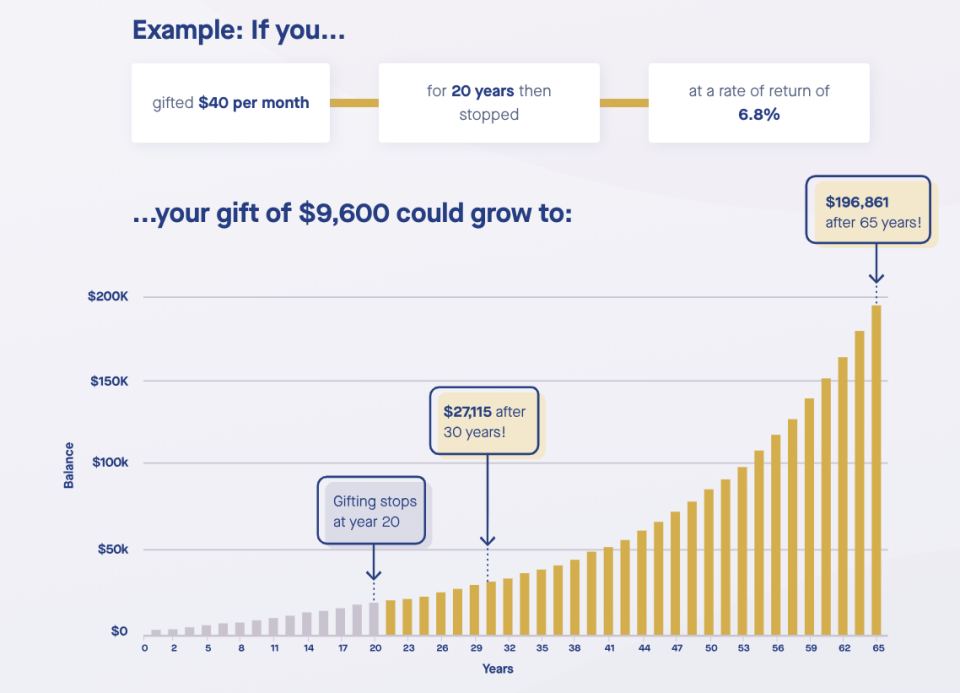How ordinary parents are giving kids $27K for their 30th birthday

Most Australians open super accounts when they get their first job. That can be as early as 15, or as late as 22.
But imagine if you had an extra 20 years of compound interest. The results would be spectacular.
Student Super has done the maths.
If you opened a superannuation fund for your child when they were born and contributed $40 every month until they were 20, they’d have an extra $27,115 in super by the time they were 30 and an extra $196,861 by the time they retired at 65.

“The compounding is extraordinary,” Student Super founder Andrew Maloney told Yahoo Finance.
“It starts off your super balance basically 20 years earlier. Instead of starting at 18, 19, 20 you’re starting as a baby. You’re adding 20 years of compounding.”
The super fund added “Golden Goose Gifting” to tap into this market last year, after fielding numerous calls from parents and grandparents interested in gifting funds into their children’s super funds.
It’s not the only way parents are boosting their children’s future wealth.
According to Finder research released today, 43 per cent of Australian babies have their own bank account by the time they are one.
And 73 per cent of parents will open a bank account for their child before they enter high school.
A savings account can help fund education, a first car or even a house deposit, explained Finder money specialist Sophie Walsh.
It also helps children learn the value of money.
“If they can see their pool of money growing it will help them resist the temptation to splurge their pocket money at the canteen in favour of saving up for something more valuable like a new game or toy,” she said.
“It would be particularly valuable if you can show your child the benefits of putting away birthday money and help them set some achievable savings goals, plus if it’s put into a savings account they’ll earn interest on that money which they can’t do if it’s sitting in a physical piggy bank.”
She suggested parents look for high interest savings accounts, but be aware of any introductory rates that come with strict conditions.
Children’s savings accounts may also require regular deposits and have limits on withdrawals.
“Another way to do this, is to open a regular savings account in your own name, and add your child as a signatory at a later date. This is quick and easier to do as you can sign up online and many adult savings accounts have comparable if not better interest rates,” Walsh added.
Make your money work with Yahoo Finance’s daily newsletter. Sign up here and stay on top of the latest money, news and tech news.
Now read: Why the man who launched Flatmates.com.au has turned his eye to super
Now read: 5 tips to protect your finances from divorce
Now read: Workplace flexibility is no longer a perk, it’s a requirement

 Yahoo Finance
Yahoo Finance 
